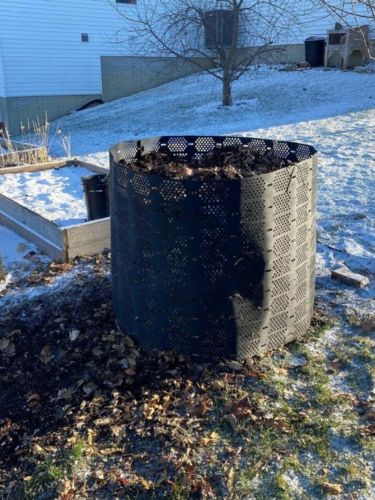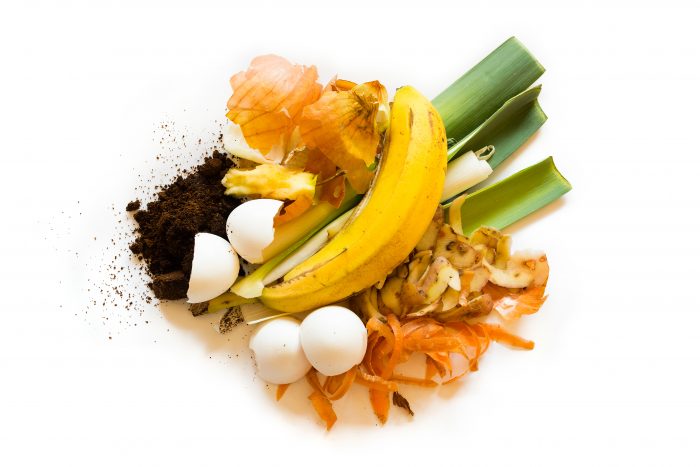Five Tips for Winter Composting
Posted November 29, 2022 After the last of the leaves have fallen and temperatures begin to drop, you probably find yourself retreating to the warmth of your house, not giving much thought to winter composting or gardening. But despite the frigid weather and your desire to stay cozy, you should consider the benefits of maintaining your compost beyond the fall season. Composting through the winter months means you’ll be reducing food waste and giving your garden and soil a head-start come spring.
After the last of the leaves have fallen and temperatures begin to drop, you probably find yourself retreating to the warmth of your house, not giving much thought to winter composting or gardening. But despite the frigid weather and your desire to stay cozy, you should consider the benefits of maintaining your compost beyond the fall season. Composting through the winter months means you’ll be reducing food waste and giving your garden and soil a head-start come spring.
Living in a region with cold, snowy winters doesn’t mean you can’t or shouldn’t continue to compost during these months. While decomposition slows down as temperatures drop, it quickly resumes as temperatures begin to rise. When freezing temperatures set in, your compost will slow down and sometimes lie dormant because most of the microorganisms responsible for decomposition cannot withstand these conditions. Don’t let this discourage you, as the freeze-thaw cycle will help to facilitate decomposition, and things will really get cooking when warmer spring weather arrives.
If you’ve decided you’re willing to brave the elements to do your part to divert waste from landfills and create a nutrient-dense soil amendment for your garden, read our five tips for winter composting.
1. Shred brown material before adding to compost.
If you read our blog Guide to Fall Composting, then you should have a reserve of carbon-rich autumn leaves to add to your compost during months when these materials are scarce. To speed up decomposition, shred this material before adding it to your compost bin. By increasing the surface area of the compostable material, you’ll make it more accessible for microbes to access and do their job.
2. Keep adding kitchen waste, but bury your food scraps to avoid rodents in your compost bin.

Your compost will still need food scraps and other nitrogen-rich material in winter. These “greens” provide body-building proteins for the microorganisms that break down organic material.
You should always bury food scraps and layer them with carbon-rich material, but this is critical in winter if you want to avoid rodents. Just like people, rats and mice seek refuge from the harsh winter weather, and they will gladly nest in a location with an endless food supply. Avoid these unwelcome pests by hiding the food waste and masking the smell that attracts them.
3. Place your GEOBIN® Composter in a sunnier part of the yard.
If possible, set up your GEOBIN Composter in an area that gets plenty of sunlight. Direct sunlight will provide much-needed heat for your compost and help to break down organic material more quickly.
4. Insulate your GEOBIN Composter.
Protect your compost from the elements by insulating it with straw, cardboard, or dry leaves. Insulating your compost bin will help it retain heat, facilitating decomposition even when it’s colder.
5. Monitor the moisture levels of your compost.
Depending on the amount of precipitation in your region, you may need to regulate the moisture level of your compost. Ideally, your compost will have the moisture content of a wrung-out sponge. If it’s too dry, you’ll notice it lacks the heat necessary to break down organic material. A dry compost pile will also be attractive to the rodents we talked about earlier. If it’s too wet, it can get slimy and begin to smell bad, but you can remedy this by adding some sawdust, straw, newspaper, or dry leaves.
With composting comes troubleshooting. No matter the time of year, you may encounter challenges when it comes to maintaining a healthy, balanced compost pile. If you find something isn’t working, it’s easy to make a few adjustments to reach a more desirable outcome. For more information on composting with the GEOBIN® Composter, check out our Guide to Backyard Composting.

